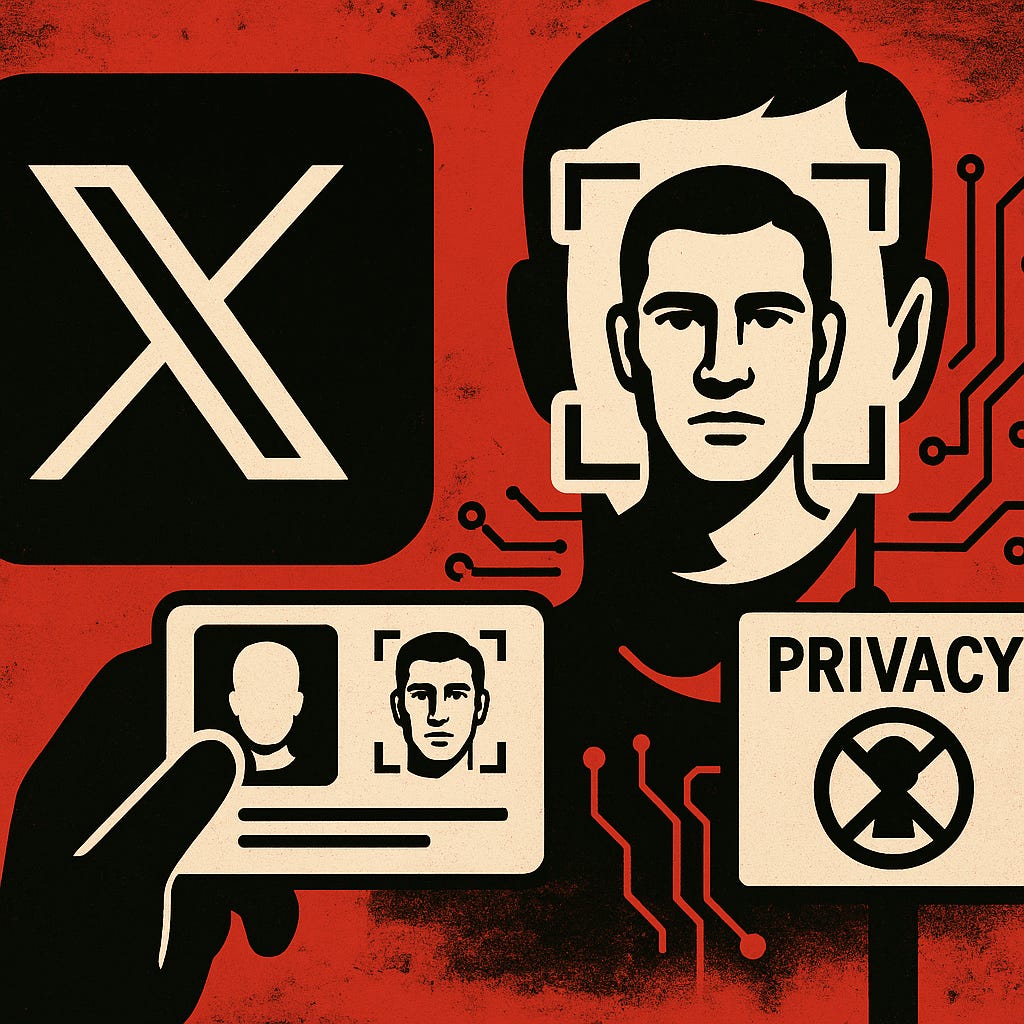X Is Becoming a Digital ID Trap
An US Company called Persona is now being used by X to block access to using it in the UK unless users go through a full biometric ID check.
That means scanning your face, uploading your ID, and verifying your real-world identity, just to see content that was always freely accessible before.
This is being done under the banner of “child protection,” because of new UK laws like the Online Safety Act, which require platforms to shield minors from adult material.
But instead of building their own verification system, X is outsourcing it to a third-party service called Persona.
What is worrying is how fast this is expanding. In the past, verification on X was mostly limited to creators — people trying to earn money once they filled out certain Criteria. Now regular users are being forced into it. And it looks like this might soon spread across the EU as well.
The company handling the ID checks, and is based in US, meaning all this sensitive personal data, biometric scans, government IDs, ends up on servers outside the UK and EU.
They claim they follow data protection rules, but confidence is low:
Persona (named whithpersona.com) has a 1.2-star average on Trustpilot, with most reviews describing constant technical failures, repeated rejections, and unhelpful or nonexistent support.
For something this sensitive, the system simply does not seem reliable.
And this is not happening in a vacuum.
The bigger picture is that Elon Musk has been openly pushing to turn X into a kind of “everything app.”
In interviews and posts, he’s compared this goal to WeChat, the Chinese app that combines messaging, payments, social media, news, government ID, and more, all in one place.
That is the direction things are heading. X already handles media, job posts, livestreams, and DMs. Payments are reportedly on the way.
Now identity is being tied in, with facial scans and ID checks just to access certain parts of the platform. What started as a social media site is turning into a centralized system for communication, commerce, and now, identity.
In that sense, this new ID system is not just about adult content. It is a step toward something much bigger: a platform that could eventually control who you are, what you see, and what you are allowed to do.
All tied to a verified identity and one companys policies.
It is one thing to offer optional ID verification.
It is another to quietly turn it into a requirement through unreliable tools.
Especially ones most people would not trust with their email address, let alone their passport and face.
The question is: Is this really the digital future we want ?
One where access, identity, and autonomy are all filtered through a single private platform?


